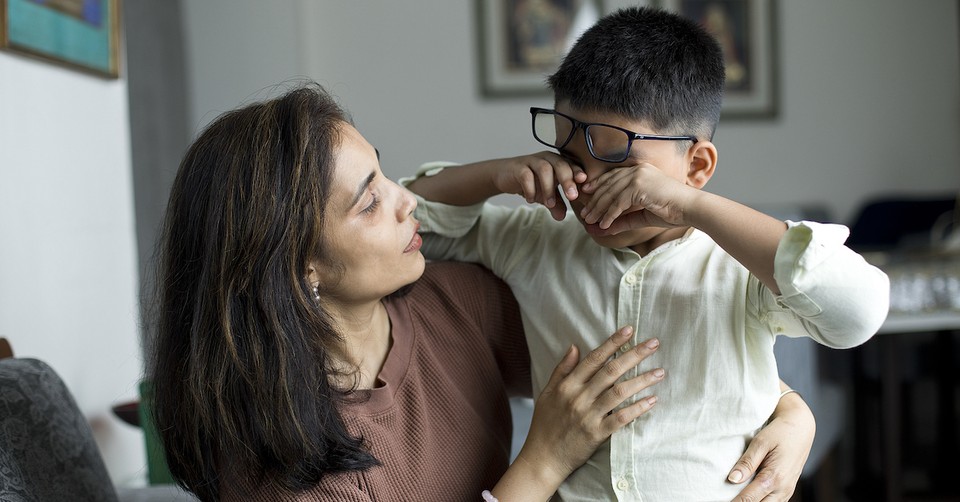Does Your Child Struggle with Perfectionism?

What exactly is perfectionism? Is my child suffering from it? In this article, we will explore these questions and more. How can we best parent a perfectionist child? Kids in our culture deal with a lot of challenges, and this is one of them. The great thing about perfectionism is with some coaching and a shift in mindset, a child can be set free.
What Is Perfectionism?
Psychology Today defines perfectionism as someone who sets unrealistically high expectations for themselves and others. They are quick to find fault and are overly critical of their mistakes. They tend to procrastinate on a project out of their fear of failure. They shrug off compliments and forget to celebrate their success. They look to specific people in their lives for approval and validation. Perfectionism can lead to stress, anxiety, and low self-esteem. They set goals so high they can’t be reached and then are frustrated when they fall short; nothing less than perfection will do. They are defensive when they face criticism. Perfectionists are so focused on their goals and avoiding failure that they don’t enjoy growing and striving. Their fear of failure can cause them to be immobilized and procrastinate, leading to further negative emotions.
Ever since Adam and Eve sinned in the garden, our chances of being “perfect” vanished. It’s the reality of our broken world. A perfectionist may be living in a false reality, expecting themselves to achieve the unachievable and control the uncontrollable. This can set you up for a most frustrating and disappointing life.
The desire to do well and achieve are notable characteristics, but if fear of failure is keeping your child from even trying, that’s when the bondage of perfectionism takes over. Through time and a shift in your child’s mindset, you can free them to appreciate the journey.
This leads me to my next point: a growth mindset versus a fixed mindset.
Growth and Fixed Mindset
Carol Dweck wrote an enlightening book called Mindset: The New Psychology of Success. She delves into what it means to have a fixed mindset versus a growth mindset. For any parents of a perfectionist child, I highly recommend this book. Where there are perfectionist children, there is often a parent or two who have similar tendencies. When I read this book, I read it for myself, yet I learned I needed to adapt my parenting techniques so I wouldn’t push down my perfectionism on my children.
To summarize Dweck’s findings, individuals who believe their talents can be developed (through hard work, good strategies, and input from others) have a growth mindset. People with a growth mindset achieve more because they worry less about looking smart and put more energy into learning. In contrast, a fixed mindset is individuals who believe their talents are innate gifts. They feel the need to prove themselves repeatedly.
Dweck says, “The passion for stretching yourself and sticking to it, even (or especially) when it’s not going well, is the hallmark of the growth mindset. This is the mindset that allows people to thrive during some of the most challenging times in their lives.”
In a growth mindset, you focus on the progress you made yesterday or the previous attempt. You look back at where you came from and acknowledge the advancement. You are comparing yourself to you yesterday. By recognizing the improvement, you get even more excited about continuing forward.
In a fixed mindset, you are looking to the people ahead of you doing it better, thinking, why am I even bothering? We want your perfectionist child to develop a growth mindset.
Learning to Fail

Perfectionists often don’t try things for fear of failure. They are afraid it will look poorly on them. To some degree, I can see how our society has made it hard and unattractive to fail. As a society, we don’t exactly acknowledge failure. Your kids must understand that behind the scenes of any greatness are numerous failed attempts. Teach your child to be comfortable with and understand the benefits of failing. This
might be the greatest gift you could give them. Why? Learning to fail means they tried.
They took the leap and put their effort into something. They probably fell short the first, second, and maybe twentieth time. If they stick to it and learn from their attempts, they will eventually see progress and possibly success. However, the focus is on the improvement rather than the result.
Think about famous inventors, musicians, athletes, and artists. We know about their success because they practiced, kept working on their craft, failed many times, learned from those attempts, made adjustments, and then kept going. Great recipes are made through many trials and errors. Rarely ever is anything great on the first attempt.
My daughter loves to bake. She makes and decorates bakery-quality cupcakes and creates recipes from scratch. Some of her attempts have not been exactly presentable or delicious. I encourage her to keep trying and baking. I allow her to make messes, use ingredients, and be creative because that’s the learning process. After years of doing this, I can ask her to make a dessert for an event, and I know it will turn out beautiful and delicious. That didn’t happen overnight. It happened over hours in the kitchen, hundreds of dirty dishes, and way too many bags of sugar.
How can we encourage our kids to fail and become comfortable with the concept? Celebrate their attempts, ask questions about what they learned, and encourage them to try new things. Normalize failure and explain the benefits.
Freedom From Perfectionism
The downside of perfectionism is you are often looking to others to give you praise and fill your worth. When they win the competition, get the best grade, get picked as captain, all these things fill their bucket for needing affirmation and confirming they did a good job.
Here’s the problem. If they don’t win or accomplish the high expectation they have set, they are disappointed with themselves. We don’t want to live our lives based on the approval of others. We want to free your children of this cycle.
The great news is they are already freedom in Christ. That is the wonderful news of the gospel. Your child needs to know that Jesus and their parents love them because of who they are, not what they do.
“It is for freedom that Christ has set us free. Stand firm, then, and do not let yourselves be burdened again by a yoke of slavery.” (Galatians 5:1)
We must teach our kids Scripture about this freedom. Other kids may not have this advantage, but kids being raised in a Christian home do. You can teach them the parable of the talents in Matthew 25:14-46. Explain to them not to compare themselves to others but rather use and develop the talents God gave them. When our kids accomplish something, instead of telling them how great they are, acknowledge their effort. Tell them to be proud of their hard work. Any accomplishment is the result of hours, days, months, and years of effort that was put into a goal.
Acknowledge the use of the skills they’ve developed.
Help your kids understand you love them just because, and your love is not contingent on their grades, their starting spot, or their collegiate scholarship. Our love should strive to mimic Jesus and have no strings attached! If they know this, it will free them of any expectations they think we have. They may still attach their high expectations, but at least we aren’t adding to the burden.
Overcoming Perfectionism

Photo credit: ©GettyImages/Halfpoint
When helping your child shift their mindset, Dweck tells us, “We can praise wisely, not praising intelligence or talent. That has failed. Don’t do that anymore. But praising the process that kids engage in: their effort, their strategies, their focus, their perseverance, their improvement. This process praise creates kids who are hardy and resilient. How we word things affects confidence, the words ‘yet’ or ‘not yet’ “give kids greater confidence, give them a path into the future that creates greater persistence.” We can change mindsets.”
Encourage your child to push out of their comfort zone to learn something new. When this occurs, neurons form new stronger connections.
Look at Mozart, Michael Jordan, Tiger Woods, and Michelangelo. These are household names because they excelled in their craft, whether music, sports, or art. Why were they so good at what they did? God gifted them with talent. However, it’s what they did with their talent which made all the difference. When Michael Jordan completed the “perfect” dunk,” it was because he had done it a million times in practice.
Mozart practiced and spent years working on his craft before composing music.
Kobe Bryant spent hours in the gym practicing individually and lifting before his team practice even started. You get the idea. Greatness isn’t accomplished through raw talent. It’s accomplished through practice, studying mistakes, and learning from others.
Striving for excellence can feel uncomfortably close to perfectionism at times. We have desires to achieve all God has planned for us, and we want to do it to the best of our ability. Keep your eyes focused on your Heavenly Father, and He will keep straight your paths. (Proverbs 3:6)
If you keep reminding yourself and your children that our goal is to glorify God in all that we do, our efforts will be kept in check and our motivations healthy.
Does God want us to strive for greatness? Absolutely. Is His love based on our performance? Absolutely not! He came to save sinners, not the righteous.
“I have not come to call the righteous, but sinners.” (Mark 2:17)
God loves us no matter what. We are known and loved despite our failures and sins. Once your kids can get a handle on the power that comes with that statement, they will be free to launch into whatever He might have planned for them. We don’t have to be perfect because God is.
Photo credit: ©GettyImages/triloks

Originally published September 13, 2023.




